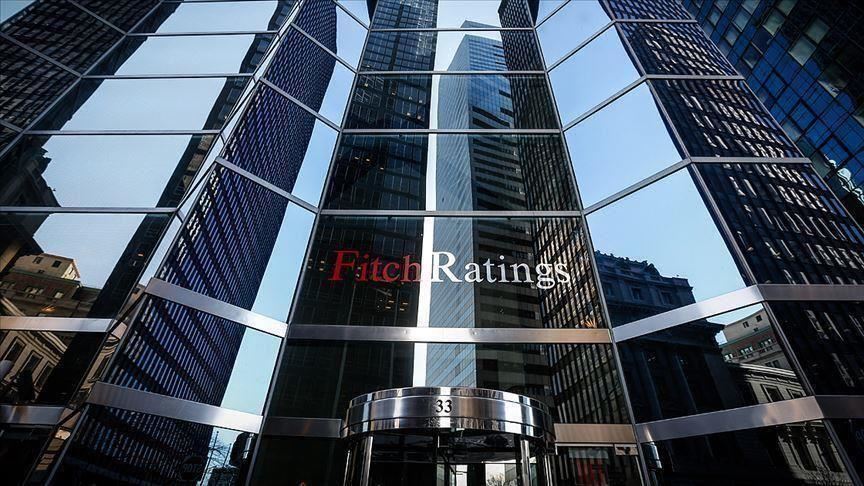Fitch rates Iraq at "B-"; projects stable outlook

Shafaq News/ Fitch Ratings has affirmed Iraq's Long-Term Foreign-Currency Issuer Default Rating (IDR) at 'B-' with a Stable Outlook, an official report said earlier this week.
"Iraq's 'B-' rating reflects its high commodity dependence, weak governance, political risk, and an undeveloped banking sector, balanced by high FX reserves and low interest costs on government debt," the report said, "buoyant oil prices have improved many of Iraq's credit metrics in 2022, but the absence of structural, economic or fiscal reforms and persistence of political risk constrain the rating."
Domestic and regional political risks and weak governance, according to the report, will continue to constrain the rating.
"Iraq's persistently low scores across World Bank governance indicators reflect political instability, corruption, government ineffectiveness, weak institutions and insecurity," the report said, noting that the bulk of oil production and export facilities are located away from areas that have presented the highest security risk.
Difficulties in forming a government following the October 2021 parliamentary election aggravated political tensions in 2022, with violent clashes in Baghdad between two rival Shia blocs - the Sadrists and the Co-ordination Framework.
The Coordination Framework, an alliance of Iran-aligned factions, finally managed to form a government in October 2022, a year after the election. The underlying tensions that have stymied Iraq's politics will persist, including over Iranian influence and Kurdish oil autonomy.
The budget surplus will swell to around 10% of GDP in 2022, propelled by higher oil revenue, while political instability and the absence of a budget have restrained spending growth somewhat. Oil output growth of 12%, in line with OPEC+ production agreements, has driven real GDP of close to 10%, while nominal GDP has likely grown by 36%, pushing the economy above levels reached in 2013-2014 (although not in per capita terms, given strong population growth).
We forecast a significantly smaller surplus in 2023, at 2.2% of GDP. We assume at least a 10% increase in spending, to IQD135 trillion, and that oil revenue will moderate, with Brent crude averaging USD85/bbl down from USD100/bbl in 2022 and oil production and exports marginally lower on average in line with the latest OPEC+ cut in November 2022. Iraq's government spending tends to follow the oil price cycle. Periods of higher oil revenue, such as 2011-2014 and 2018-2019 were associated with higher spending. The finance ministry is currently preparing a draft 2023 budget to send to parliament but it is unlikely that the 2023 budget will incorporate fiscal reforms as was outlined in a whitepaper in October 2020.
We forecast a budget deficit in 2024 of around 3% of GDP, assuming the average Brent crude price falls to USD65/bbl, which despite some uptick in production would prompt a nominal decline in government spending (to IQD128 trillion, on our assumptions).
Iraq's budget revenue sensitivity to oil price and volume is significant. A USD10/bbl change in the average oil price in 2023 relative to our forecast would impact the budget by around 4% of GDP, assuming unchanged spending. In terms of volume, an additional 250,000 bbl/day of oil exports would boost revenue by 2.6% of GDP.
We estimate Iraq's fiscal break-even Brent-equivalent oil price at USD79/bbl in 2023, moderating to USD72/bbl in 2024. Iraq's fiscal break-even oil price is volatile, reflecting the procyclical response of spending to oil revenue. It has moved within a band of USD55/bbl-USD80/bbl in 2015-2021. Prior to this it had soared above USD100/bbl, during the period of more consistently high oil prices.
Government debt/GDP is set to fall steeply in 2022, to 42% of GDP from 59% of GDP in 2021 and below pre-Covid-19 pandemic levels, driven down by the denominator effect and budget surplus. Nominal domestic debt has declined only marginally, but government deposits at the central bank have increased. Our total debt numbers include an estimated USD40 billion of legacy debt stemming from the 1980s, which Iraq faces no pressure to service following its Paris Club agreement of 2004. Excluding this debt, overall government debt/GDP would be around 30% at end-2022.
In 2023, we forecast government debt/GDP to remain broadly stable as the budget surplus reduces and nominal GDP declines owing to lower oil prices. Over the medium term, we forecast government debt/GDP to rise due to lower oil prices (only partially offset by higher production), manifold spending pressures and a lack of reform to improve non-oil revenue and the fiscal structure, which suffers from a bloated and inefficient civil service.
The banking sector is underdeveloped, fundamentally weak and dominated by state-owned banks with opaque finances. This creates domestic financing constraints for the government. During recent oil price shocks the government has needed both to cut spending and to resort to indirect monetary financing from the central bank, which holds around 60% of domestic debt (10% of GDP). Domestic debt is 40% of total government debt.
"We expect reserve levels to reach record levels in 2022, close to USD90 billion, before moderating in 2023-2024, to around USD74 billion, as oil prices shift lower and import levels and government spending pick up. This would still represent more than 10 months of current external payments and provides a substantial financial buffer in relation to annual external debt service projections, of less than 2% of GDP (less than USD5 billion). Of this the majority is to official creditors. Iraq has a USD1 billion Eurobond maturing in 2023 that can be comfortably repaid using the government's sizeable cash buffer."
Iraq has an ESG Relevance Score (RS) of '5' for both Political Stability and Rights and for the Rule of Law, Institutional and Regulatory Quality and Control of Corruption.
"Theses scores reflect the high weight that the World Bank Governance Indicators (WBGI) have in our proprietary Sovereign Rating Model. Iraq has a low WBGI ranking just below the 10th percentile, reflecting political instability, corruption, government ineffectiveness, weak institutions and insecurity," he said.
Iraq has an ESG Relevance Score of '5' for Political Stability and Rights as World Bank Governance Indicators have the highest weight in Fitch's SRM and are therefore highly relevant to the rating and a key rating driver with a high weight. As Iraq has a percentile rank below 50 for the respective Governance Indicator, this has a negative impact on the credit profile.
Iraq has an ESG Relevance Score of '5' for Rule of Law, Institutional & Regulatory Quality and Control of Corruption as World Bank Governance Indicators have the highest weight in Fitch's SRM and are therefore highly relevant to the rating and are a key rating driver with a high weight. As Iraq has a percentile rank below 50 for the respective Governance Indicators, this has a negative impact on the credit profile.
Iraq has an ESG Relevance Score of '4'for Human Rights and Political Freedoms as the Voice and Accountability pillar of the World Bank Governance Indicators is relevant to the rating and a rating driver. As Iraq has a percentile rank below 50 for the respective Governance Indicator, this has a negative impact on the credit profile.
Iraq has an ESG Relevance Score of '4' for Creditor Rights as willingness to service and repay debt is relevant to the rating and is a rating driver for Iraq, as for all sovereigns. As Iraq has a fairly recent restructuring of public debt in year 2006, this has a negative impact on the credit profile.




